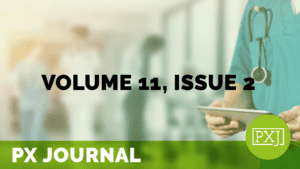‘Making it Meaningful’: Co-designing an intervention to improve medication safety for people from culturally and linguistically diverse backgrounds accessing cancer services.

This study reports on the process of using an adapted Experienced-Based Co-Design (EBCD) conducted with culturally and linguistically diverse (CALD) consumers and cancer service staff to co-design the novel ‘Making it Meaningful’(MiM) instrument at a cancer service in Australia. Multi-source experiential and contextual information was gathered in phase 1 of the co-design and this evidence, coupled with knowledge gathered via a feedback event was used to inform three co-design workshops in phase 2. A series of meetings were conducted prior to and in between the workshops. Theory was progressively integrated into the workshop content. Two Mandarin speaking CALD consumers and three cancer service staff participated as co-design members. Workshops were supported by a multilingual fieldworker, co-facilitated by researchers and a consumer co-facilitator, and conducted using a hybrid model (face-to-face or online participation). In the first workshop members democratically selected to focus on a strategy to enable CALD consumers to make non-emergency urgent contact with the cancer service for medication related communication. The second workshop resulted in consensus to develop an accessible instrument that would identify appropriate contacts and information sources for medication management between appointments. In the third workshop, the prototype MiM instrument was developed and refined. The MiM is a novel instrument designed with CALD consumers to enhance their knowledge of medication management and empower them to contact cancer service staff about medication safety concerns. Feasibility testing is the next step with successful implementation requiring senior health leadership support and involvement of co-design members as change agents.
Related content
-
 Patient Family & Community Engagement | Quality & Clinical Excellence | Staff & Provider Engagement
Patient Family & Community Engagement | Quality & Clinical Excellence | Staff & Provider EngagementCompassion Rounds: Connecting with Patients and Families Beyond a Diagnosis
During a hospitalization, medical rounds address the patient’s physical needs but often fall short of addressing emotional and spiritual needs. Compassion rounds is an innovative program that focuses on a patient’s mind, body and spirit. It assists families in finding hope, strength, and peace. The goal is to empower patients and families to learn new
Learn more -
 Quality & Clinical Excellence
Quality & Clinical ExcellenceAccompanying People Affected by Cancer in Their Return to Life After Treatment: A Report on an Experiment Conducted in Canada
This study aims to assess family doctors’ perceived needs for improved patient follow-up post-acute treatment in oncology departments, specifically focusing on the Patient Oriented Discharge Summary (PODS) for individuals living with cancer.
Learn more -
 Patient Family & Community Engagement | Quality & Clinical Excellence
Patient Family & Community Engagement | Quality & Clinical ExcellenceEmpowering Families in the NICU: The Transformative Impact of Family Integrated Care
Family Integrated Care (FIC) is a transformative approach in neonatal and pediatric units, redefining the landscape of family-centered healthcare. This webinar focuses on the importance of FIC for hospitalized infants, children, and their families. FIC recognizes the integral role of families and encourages their active participation in all aspects of their child’s care, transforming them
Learn more
